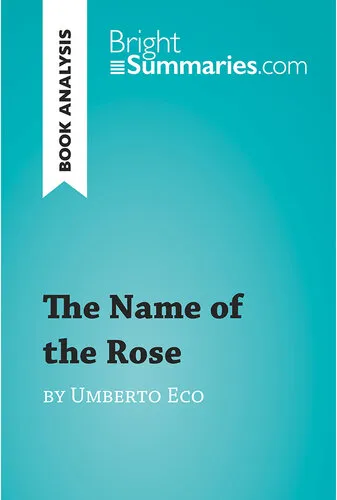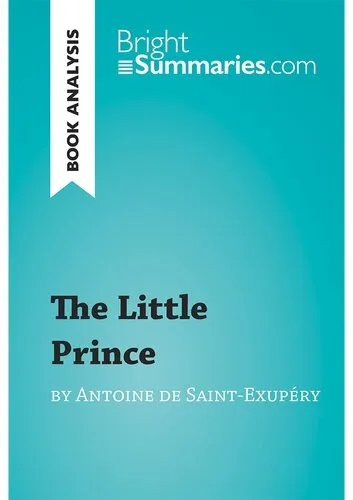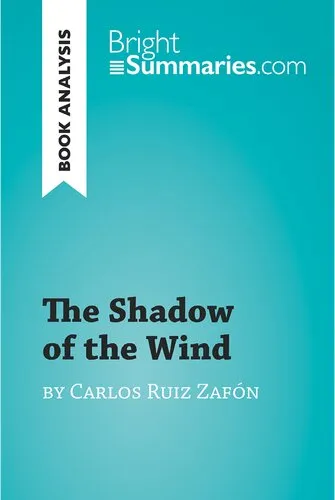The Name of the Rose by Umberto Eco (Book Analysis): Detailed Summary, Analysis and Reading Guide
4.0
Reviews from our users

You Can Ask your questions from this book's AI after Login
Each download or ask from book AI costs 2 points. To earn more free points, please visit the Points Guide Page and complete some valuable actions.Related Refrences:
Introduction
Welcome to the comprehensive analysis of "The Name of the Rose" by Umberto Eco, a captivating work that brilliantly intertwines historical fiction with a detective story. This guide will delve into the intricate facets of Eco's masterpiece, offering readers an in-depth understanding of its themes, characters, and complexities.
Umberto Eco, an Italian novelist and semiotician, crafts an enigmatic narrative set in the 14th century, where philosophy, theology, and literary analysis converge within the confines of a medieval monastery. "The Name of the Rose" is much more than a mere historical narrative; it is a stimulating intellectual adventure, a work of historical metaphysics complemented by mystery and suspense. This book analysis aims to unravel the layers of Eco's text, offering insights into its historical background, philosophical reflections, and the profound questions it raises.
Spanning over 500 pages, Eco's novel is rich with symbolic elements, enigmatic characters, and long-forgotten scholarly debates. As you embark on this analytical journey, you'll explore various dimensions of the text, each carefully dissected to provide a clearer picture of Eco's expansive world. From the subtlety of the semiotic clues to the reverberations of theological inquiries, every corner of this narrative awaits discovery.
Detailed Summary of the Book
This section provides an exhaustive summary of "The Name of the Rose," capturing its essence while guiding you through its intricate plot. The story is set in 1327 and follows the Franciscan friar William of Baskerville and his novice, Adso of Melk, during their visit to a Benedictine monastery in Italy. As they arrive for a theological debate, a series of bizarre deaths unfolds, propelling William and Adso into a whirlwind of secrets and intrigue.
William, a character inspired by Sherlock Holmes, employs logic and deductive reasoning to solve the mystery, unraveling themes of power, corruption, and the eternal struggle between faith and reason. As you delve deeper into this analysis, you will discover how Eco deftly intertwines these elements with historical events of the time, offering a narrative that resonates with universal human concerns.
Key Takeaways
"The Name of the Rose" presents multiple key takeaways, prompting readers to reflect on significant philosophical and theological questions.
- The Complexity of Truth: Eco explores the elusive nature of truth and how it is perceived differently by individuals.
- The Power of Knowledge: Knowledge is depicted as a double-edged sword, capable of enlightening and corrupting.
- The Interplay of Faith and Reason: The novel insightfully examines the tension between faith and rationality, a recurring theme throughout human history.
Famous Quotes from the Book
Eco's novel is replete with memorable quotes that encapsulate its profound themes. Here are a few:
"Books are not made to be believed, but to be subjected to inquiry."
"Wherever there is light, there is also shadow."
"The library is a metaphor for society and, like society, can either be a place of shared knowledge or one of suppressive upheaval."
Why This Book Matters
"The Name of the Rose" is a seminal work that transcends time, offering relevance to contemporary audiences. The novel's significance lies in its multifaceted exploration of humanity's quest for meaning in an ever-complex world.
The ethical dilemmas and ideological conflicts portrayed mirror modern-day challenges, providing a timeless reflection on the human condition. Eco's rich narrative not only entertains but also encourages readers to question the societal structures around them and their perceptions of truth and morality.
Through this guide, you will gain a deeper appreciation for Eco's literary craftsmanship and the enduring impact of "The Name of the Rose." Whether you are an ardent scholar or a casual reader, this analysis seeks to enrich your understanding of one of the 20th century's most pivotal novels.
Free Direct Download
You Can Download this book after Login
Accessing books through legal platforms and public libraries not only supports the rights of authors and publishers but also contributes to the sustainability of reading culture. Before downloading, please take a moment to consider these options.
Find this book on other platforms:
WorldCat helps you find books in libraries worldwide.
See ratings, reviews, and discussions on Goodreads.
Find and buy rare or used books on AbeBooks.
1589
بازدید4.0
امتیاز0
نظر98%
رضایتReviews:
4.0
Based on 0 users review
Questions & Answers
Ask questions about this book or help others by answering
No questions yet. Be the first to ask!














